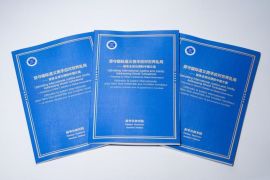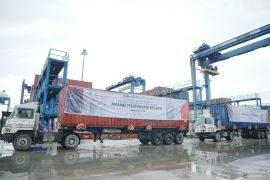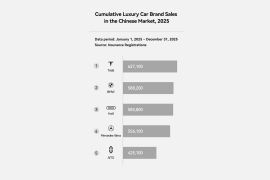"President Joko Widodo told President Xi Jinping when saying goodbye yesterday that next month a team from Indonesia may visit China to follow up talks on the projects," Luhut said.Jakarta (ANTARA News) - Coordinating Minister for Maritime Affairs Luhut Binsar Pandjaitan said China had given positive response to investment project offered by Indonesia at the Belt and Road Initiative (BRI) forum earlier this week in Beijing.
Among the projects offered by Indonesia include integrated seaports of Bitung, in North Sulawesi, and Kuala Tanjung in North Sumatra and power generating plant and industrial estate in North Kalimantan.
"President Joko Widodo told President Xi Jinping when saying goodbye yesterday that next month a team from Indonesia may visit China to follow up talks on the projects," Luhut said here on Tuesday.
He said the President has passed order to prepare the list of projects to be offered to China.
"We just wait for an official announcement from the president. It would concern a fairly big investment fund. China agreed on the program to produce palm oil-based bio-diesel B5 fuel. The project would need palm oil that we could supply," he said.
Indonesia is the worlds largest producer and exporter of crude palm oil and China is a major consumer of the commodity.
The two-day BRI forum ending on Monday was attended by 29 heads of state and government and heads of international organizations such as the International Monetary Fund (IMF) discussing synergy in policy, community relations and development of infrastructure.
Indonesia, which is busy carrying out its ambitious infrastructure projects, hopes to gain from the forum.
Luhut did not say investment figure agreed upon between Indonesia and China, although a number of other countries already received fairly large investment from China.
"China already invested heavily in a number of other countries. Among those receiving big inflows of investment from China include Saudi Arabia through the sale of a stake in its oil company Saudi Aramco. In Pakistan, China already invested US$62 billion, in Malaysia US$30 billion, and in the Philippines US$20 billion," he said.
Compared to those countries, Indonesia, the largest economy in southeast Asia, has not succeeded much in drawing investment from China. Based on data at the Capital Investment Coordinating Board (BKPM), Chinese investment under the BRI forum in Indonesia was only around US$5 billion-US$6 billion,
Luhut said the government would facilitate investment by China in Indonesia such as with tax holiday. He said the agreement reached at the forum was not in the form of loan fund.
China, the worlds second largest economy has a foreign exchange reserve of US$3 trillion, Luhut said, adding by releasing only one third of the fund China could help many other countries in economic development.
"The Belt and Road Forum could be better than APEC as discussion at the BRI is more concrete. However, we would remain to be careful. We dont want to convert investment into loan as we want to maintain the position of our debts below 30 percent of our GDPO," he said.
China sees the strategic position of Indonesia in its vision of reviving the legendary Silk Road . During his visit here in 2013, President Xi addressed the Indonesian Parliament, and spoke about One Belt One Road (OBOR) and the establishment of Asian Infrastructure Investment Bank (AIIB) to finance infrastructure projects and expressed support for regional economic connectivity and integration.
Investment offer from China for Indonesia began to come such as for the planned development of Jakarta-Bandung speed railway facility and infrastructure.
The Chinese government indicated in a number occasions that the Jakarta-Bandung speed railway was a prestigious project in Southeast Asia. Chinese officials said the project is a model of bilateral cooperation between the two countries involving the government and the private sector.
China, now the worlds largest investing country, has up to US$500 billion set aside for investment program in the next 10 years. The huge fund is to be used mainly to finance infrastructure projects, which are badly needed by Indonesia.
Indonesias exports to China had grown fast before slump hit the global economy including Chinese economy. The crisis resulted in a decline in Indonesias exports including to China.
Lately, however, there were signs of recovery. In the first two months of the year Indonesias exports to that country were valued at US$4.3 billion, up sharply from US$2.6 billion in the same period in 2016 and from US$2.7 billion in 2015.(*)
Editor: Heru Purwanto
Copyright © ANTARA 2017











